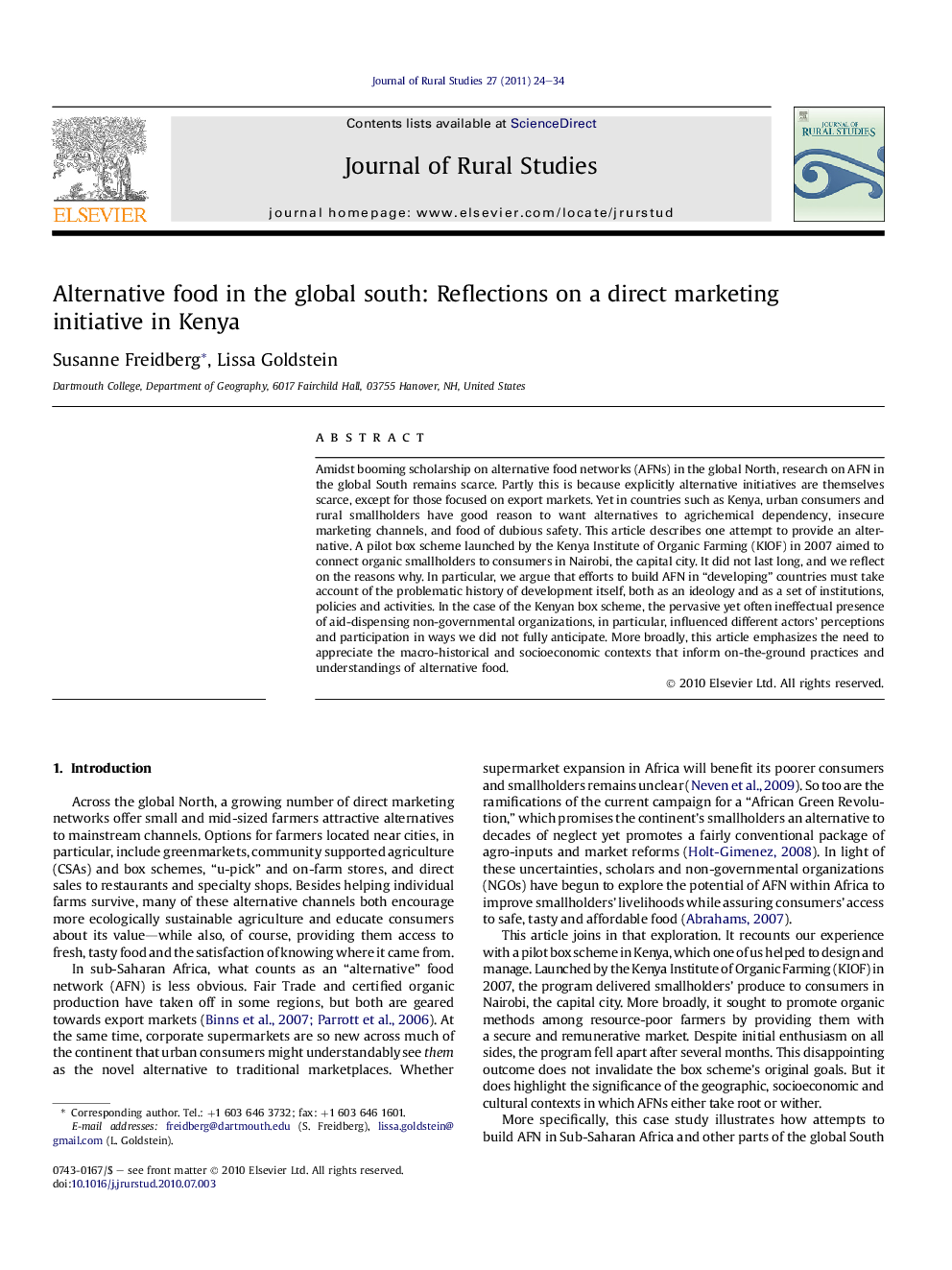| Article ID | Journal | Published Year | Pages | File Type |
|---|---|---|---|---|
| 92721 | Journal of Rural Studies | 2011 | 11 Pages |
Amidst booming scholarship on alternative food networks (AFNs) in the global North, research on AFN in the global South remains scarce. Partly this is because explicitly alternative initiatives are themselves scarce, except for those focused on export markets. Yet in countries such as Kenya, urban consumers and rural smallholders have good reason to want alternatives to agrichemical dependency, insecure marketing channels, and food of dubious safety. This article describes one attempt to provide an alternative. A pilot box scheme launched by the Kenya Institute of Organic Farming (KIOF) in 2007 aimed to connect organic smallholders to consumers in Nairobi, the capital city. It did not last long, and we reflect on the reasons why. In particular, we argue that efforts to build AFN in “developing” countries must take account of the problematic history of development itself, both as an ideology and as a set of institutions, policies and activities. In the case of the Kenyan box scheme, the pervasive yet often ineffectual presence of aid-dispensing non-governmental organizations, in particular, influenced different actors’ perceptions and participation in ways we did not fully anticipate. More broadly, this article emphasizes the need to appreciate the macro-historical and socioeconomic contexts that inform on-the-ground practices and understandings of alternative food.
